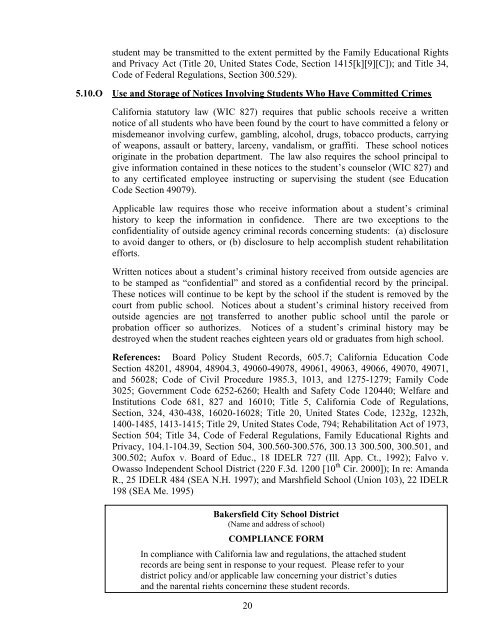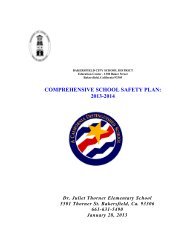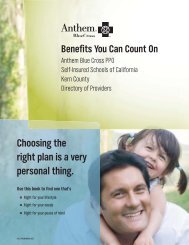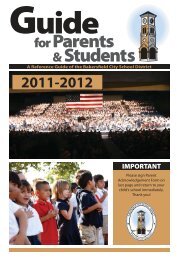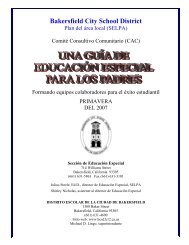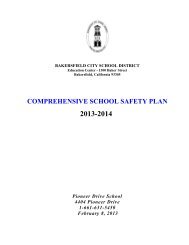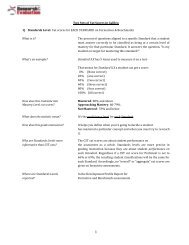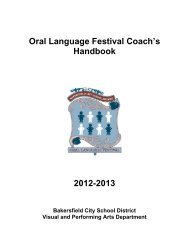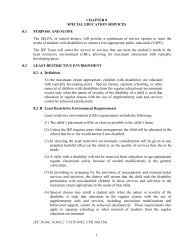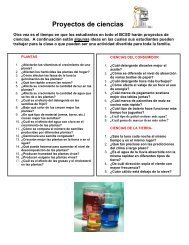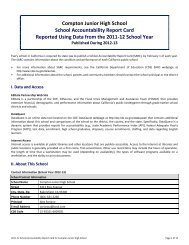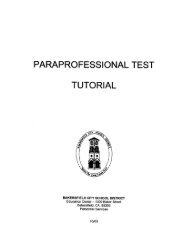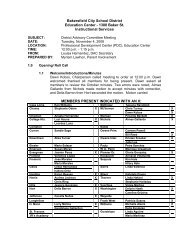CHAPTER5rev.speciale.. - BCSD Static Server - Bakersfield City ...
CHAPTER5rev.speciale.. - BCSD Static Server - Bakersfield City ...
CHAPTER5rev.speciale.. - BCSD Static Server - Bakersfield City ...
You also want an ePaper? Increase the reach of your titles
YUMPU automatically turns print PDFs into web optimized ePapers that Google loves.
student may be transmitted to the extent permitted by the Family Educational Rights<br />
and Privacy Act (Title 20, United States Code, Section 1415[k][9][C]); and Title 34,<br />
Code of Federal Regulations, Section 300.529).<br />
5.10.O Use and Storage of Notices Involving Students Who Have Committed Crimes<br />
California statutory law (WIC 827) requires that public schools receive a written<br />
notice of all students who have been found by the court to have committed a felony or<br />
misdemeanor involving curfew, gambling, alcohol, drugs, tobacco products, carrying<br />
of weapons, assault or battery, larceny, vandalism, or graffiti. These school notices<br />
originate in the probation department. The law also requires the school principal to<br />
give information contained in these notices to the student’s counselor (WIC 827) and<br />
to any certificated employee instructing or supervising the student (see Education<br />
Code Section 49079).<br />
Applicable law requires those who receive information about a student’s criminal<br />
history to keep the information in confidence. There are two exceptions to the<br />
confidentiality of outside agency criminal records concerning students: (a) disclosure<br />
to avoid danger to others, or (b) disclosure to help accomplish student rehabilitation<br />
efforts.<br />
Written notices about a student’s criminal history received from outside agencies are<br />
to be stamped as “confidential” and stored as a confidential record by the principal.<br />
These notices will continue to be kept by the school if the student is removed by the<br />
court from public school. Notices about a student’s criminal history received from<br />
outside agencies are not transferred to another public school until the parole or<br />
probation officer so authorizes. Notices of a student’s criminal history may be<br />
destroyed when the student reaches eighteen years old or graduates from high school.<br />
References: Board Policy Student Records, 605.7; California Education Code<br />
Section 48201, 48904, 48904.3, 49060-49078, 49061, 49063, 49066, 49070, 49071,<br />
and 56028; Code of Civil Procedure 1985.3, 1013, and 1275-1279; Family Code<br />
3025; Government Code 6252-6260; Health and Safety Code 120440; Welfare and<br />
Institutions Code 681, 827 and 16010; Title 5, California Code of Regulations,<br />
Section, 324, 430-438, 16020-16028; Title 20, United States Code, 1232g, 1232h,<br />
1400-1485, 1413-1415; Title 29, United States Code, 794; Rehabilitation Act of 1973,<br />
Section 504; Title 34, Code of Federal Regulations, Family Educational Rights and<br />
Privacy, 104.1-104.39, Section 504, 300.560-300.576, 300.13 300.500, 300.501, and<br />
300.502; Aufox v. Board of Educ., 18 IDELR 727 (Ill. App. Ct., 1992); Falvo v.<br />
Owasso Independent School District (220 F.3d. 1200 [10 th Cir. 2000]); In re: Amanda<br />
R., 25 IDELR 484 (SEA N.H. 1997); and Marshfield School (Union 103), 22 IDELR<br />
198 (SEA Me. 1995)<br />
<strong>Bakersfield</strong> <strong>City</strong> School District<br />
(Name and address of school)<br />
COMPLIANCE FORM<br />
In compliance with California law and regulations, the attached student<br />
records are being sent in response to your request. Please refer to your<br />
district policy and/or applicable law concerning your district’s duties<br />
and the parental rights concerning these student records.<br />
20


